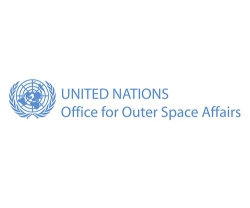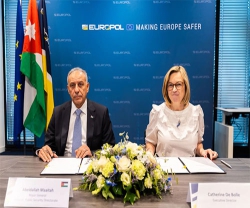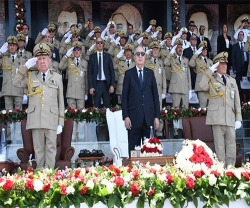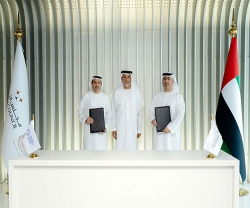The Emirates Group announced its half-year results for its 2020-21 financial year.
The Group’s revenue was AED 13.7 billion (US$ 3.7 billion) for the first six months of 2020-21, down 74% from AED 53.3 billion (US$ 14.5 billion) during the same period last year. This dramatic revenue decline was due to the COVID-19 pandemic which brought global air passenger travel to a halt for many weeks as countries closed their borders and imposed travel restrictions. As part of pandemic containment measures, Emirates and dnata’s hub in Dubai also suspended scheduled passenger flights for 8 weeks during April and May.
The Group reported a 2020-21 half-year net loss of AED 14.1 billion (US$ 3.8 billion).The Group’s cash position on 30 September 2020 stood at AED 20.7 billion (US$ 5.6 billion), compared to AED 25.6 billion (US$ 7.0 billion) on 31 March 2020.
His Highness (HH) Sheikh Ahmed bin Saeed Al Maktoum (photo), Chairman and Chief Executive, Emirates Airline and Group said: “We began our current financial year amid a global lockdown when air passenger traffic was at a literal standstill. In this unprecedented situation for the aviation and travel industry, the Emirates Group recorded a half-year loss for the first time in over 30 years.
“As passenger traffic disappeared, Emirates and dnata have been able to rapidly pivot to serve cargo demand and other pockets of opportunity. This has helped us recover our revenues from zero to 26% of our position same time last year.”
“We have been able to tap on our own strong cash reserves, and through our shareholder and the broader financial community, we continue to ensure we have access to sufficient funding to sustain the business and see us through this challenging period. In the first half of 2020-21, our shareholder injected US$ 2 billion into Emirates by way of an equity investment and they will support us on our recovery path,” he added.
The Emirates Group’s employee base, compared to 31 March 2020, is substantially reduced by 24% to an overall count of 81,334 as at 30 September 2020. During the first six months of 2020-21, Emirates retired 3 older aircraft from its fleet as part of its long-standing strategy to improve overall efficiency, minimize its emissions footprint, and provide high quality customer experiences.
As directed by the UAE General Civil Aviation Authority, Emirates temporarily suspended passenger flights on 25 March and worked closely with governments and embassies to operate repatriation services until Dubai International airport (DXB) re-opened for transit passengers and later for scheduled passenger flights. The airline also partnered with the health authorities to implement comprehensive pandemic health and safety measures onboard and on the ground, to safeguard its customers, employees and the communities it serves.
The airline also took its customer commitment to the next level, by expediting refunds, offering rebooking flexibility, setting up a COVID-19 travel information hub on its website to offer the latest updates on ever-changing travel requirements, and by launching the industry’s first COVID-19 medical cover for all passengers at no additional cost.
Emirates gradually restarted scheduled passenger operations on 21 May. By 30 September, the airline was operating passenger and cargo services to 104 cities.
Emirates carried 1.5 million passengers between 1 April and 30 September 2020, down 95% from the same period last year. The volume of cargo uplifted at 0.8 million tons has decreased by 35% while yield has more than doubled by 106%. This reflects the extraordinary market situation for air freight during the global COVID-19 crisis, where drastically reduced passenger flights led to limited available capacity while airfreight demand rose strongly.
Emirates was able to uplift 65% of its cargo volumes compared to the same period last year, which shows its cargo division’s outstanding agility in adapting its operations to provide air freight services in this new environment. In a very short time, Emirates Skycargo completed the partial retrofit of 10 Boeing 777-300ER passenger aircraft to transport freight on the main deck, introduced new operation protocols to enable the safe uplift of cargo in passenger cabins, rapidly restarted and scaled up its global cargo network, and put in place comprehensive bio-safety protocols for employees.





















